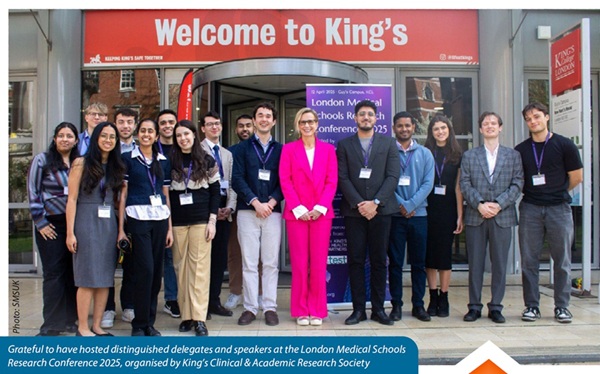Text by Christie Moral
The journey of becoming a healthcare professional has always been a tumultuous and arduous one. Like how forcing rhubarb to grow in darkness yields larger, sweeter stalks, medical and dental school demand growth in the face of hardship. The summer holidays offer solace while we are still students and serve as a time to rest, reflect and reconnect. In these months, the Singapore Medical Society of the United Kingdom (SMSUK) will begin its outreach to prospective students, as well as continue to engage its members and alumni with workshops and other activities. In this month's letter, Bia shares the lessons that she has learnt through the first year of medical school.
Text by Rabiatul Idham
It feels surreal that the academic year has come to a close. I still remember when I landed in London for the first time, eager to begin learning yet nervous about settling in and coping with medical school overseas. Truthfully, I need not have worried so much. Looking back, I have adjusted well and I am happy with how the year has unfolded. There are three stories and lessons that I hold close to my heart.
The first lesson is about kindness. Within a month of starting university, I lost a close family member. It was devastating. I confided only in my tutor and a close friend – I did not want to overwhelm my new friends with grief – and I skipped a day of lectures to grieve. With over 400 students in the cohort, I did not think anyone would even notice my absence. The next morning, however, I woke up to a message from that friend, checking in because she had noticed that I was not around. When we next met, she handed me a drink, a handwritten note and a hug. It was a small gesture, but one so full of love, kindness and compassion.
Throughout the year, I experienced many small acts of kindness that meant the world to me. Strangers helped me carry my luggage when the escalators were not working. My friends walked me home after a late-night study session at the library. My mentors offered words of encouragement when I needed them the most. These moments taught me that kindness does not have to be loud or grand; it can be quiet and thoughtful, yet still make people feel seen. This is the kindness I hope to exemplify.
The second lesson is about finding purpose and clarity. As examinations approached, it was easy to fall into the trap of becoming an "Anki warrior", mindlessly speeding through thousands of flash cards. Amid the monotony of revision, I found I learnt best when I sought meaning. For example, learning about the urea cycle and gene editing became so much more meaningful when I read about KJ Muldoon, the first patient to receive a personalised CRISPR gene-editing treatment for CPS1 deficiency.
Similarly, I read about a patient who had been under psychiatric follow-up for a period of time before his GP diagnosed him with Wilson's disease. As the GP described the patient's symptoms, examination findings, investigations and treatment plan, I was surprised that I could somewhat follow along, because we had learnt about Wilson's disease in a lecture. It was fulfilling to see the clinical relevance of what I was learning in school. Finally, while shadowing a psychiatrist, I met a patient with psychosis who was ready for discharge from the inpatient unit. The consultant told me that when the patient first arrived, he was severely unwell, just like others still in the ward. The patient's transformation was remarkable. These experiences solidified my resolve to always learn with my future patients in mind. What better thing to do with my time and energy than to work hard?
With this clarity, everything became easier. Studying was time well spent. I eagerly seized every opportunity to learn. I had previously held back from asking questions or asking for help due to my fear of judgement and rejection. However, it was easy to let go of those fears when I approached my learning with humility, striving to put my future patients first. Once I found my purpose and clarity, everything fell into place.
My final lesson is about time. I can barely believe that my first year of medical school is over and that I am now a second-year medical student. My perspective on time was profoundly shifted after reading "The Tail End" by Tim Urban.1 The piece visually presented the finite nature of life's significant moments. It struck me that by studying overseas, I had made a trade-off: five fewer Hari Raya celebrations and five fewer birthdays spent in-person with my loved ones. This is time I will never get back. This realisation changed how I spent my time. I made a list of my priorities, wanting to be intentional. This summer, that means disconnecting from social media and my phone, so I can be fully present with my loved ones.
I am grateful for this year's experiences and the lessons they have brought. I hope they resonate with you as well.

Further reading
- Urban T. The Tail End. In: Wait But Why. Available at: https://bit.ly/3IbnTn9.